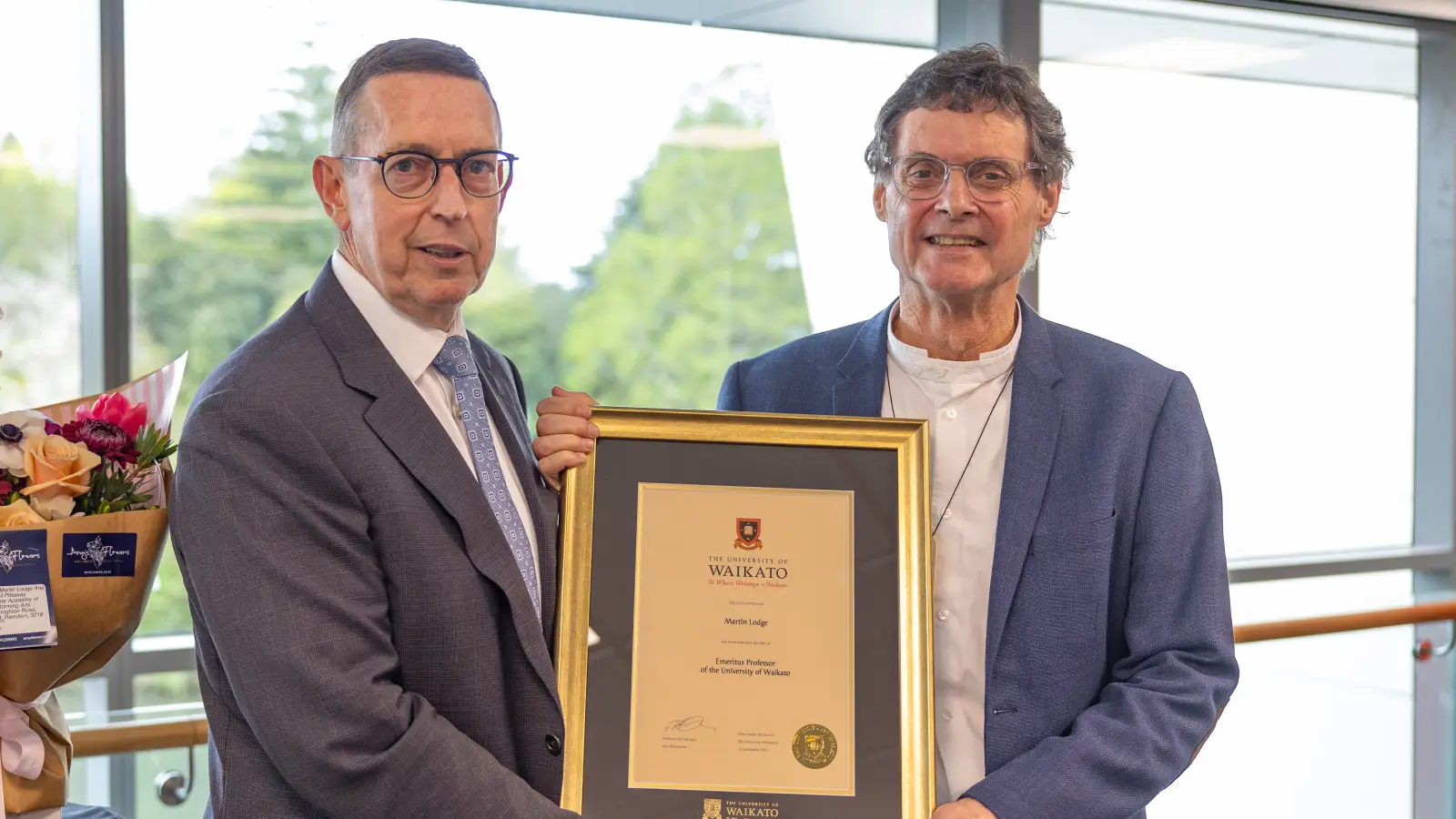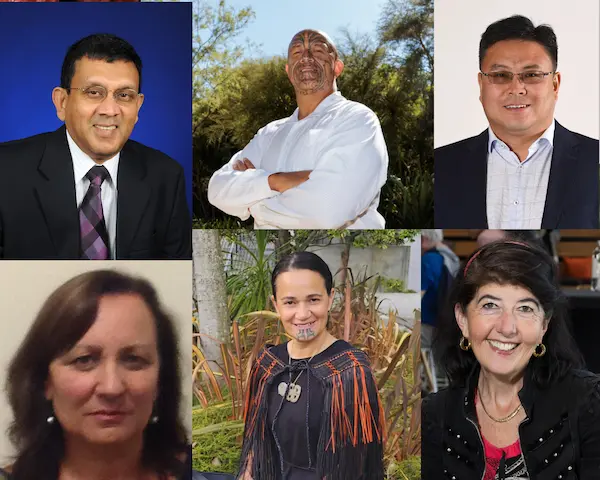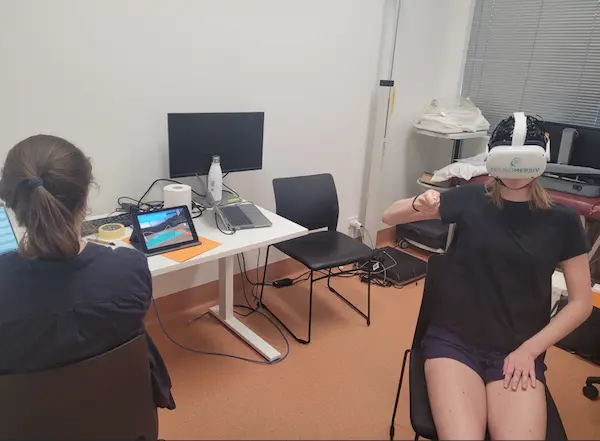The Psychology Centre is moving onto the Hamilton campus this month.
The clinic provides mental health services to the community, including psychological assessments and treatment.

From left to right, Professor Vincent Reid from the University of Waikato School of Psychology with Natalie Parkes and Dr Joshua Myers from The Psychology Centre.
Previously located in Frankton, The Psychology Centre is now operating in refurbished facilities on Hillcrest Road.
With strong ties to the University, clinic staff support Waikato Postgraduate Diploma in Clinical Psychology (PGDipPsych(Clin)) students with training, teaching, internships and clinical supervision.
Dr Carrie Barber, senior lecturer in the School of Psychology, says the move brings theory and practise together on campus, offering increased opportunities for research, collaboration and learning.
“They have six clinical psychologists on staff with expertise in different areas,” says Dr Barber. “They have always helped us with training and teaching but now, being here on campus, it feels like we are all on the same team.”
The Psychology Centre was established in 2000 by Professor Ian Evans, former chair of the University’s clinical psychology programme. From its inception, it was a training centre for students, but was set up as an independent offsite clinic supporting people with significant mental health issues in the community.
When funding changes happened several years ago, The Psychology Centre had to reduce its capacity for training student clinicians.
 Natalie Parkes from The Psychology Centre, seated at front, surrounded by some first-year Waikato University postgraduate clinical psychology students.
Natalie Parkes from The Psychology Centre, seated at front, surrounded by some first-year Waikato University postgraduate clinical psychology students.
Professor Vincent Reid from the School of Psychology, who is also on the board of The Psychology Centre, created a plan to support the development and training of students, and bringing the clinic on to campus was the perfect solution for both parties.
“It’s a win for everybody,” agrees Dr Joshua Myers, director of The Psychology Centre. “Students get to work with people in the community in need of help, and we can offer supervision and training to those students seeing clients here on campus.”
A number of clinic staff teach or lecture on specialist topics. Dr Myers teaches PSYCH338 Mental Health and Wellbeing, a popular undergraduate Psychology class.
“That paper is about assessment, disorders and treatments, so it’s ideal for one of us in clinical practice to teach, as we can provide current, practical information to the students,” says Dr Myers.
The demand for mental health services is high, with another 1000 clinical psychologists needed across the country, according to the New Zealand College of Clinical Psychologists.
Waikato University is striving to meet this demand, and has increased the intake of its PGDipPsych(Clin) programme by 50 per cent over the last four years.
Student Tanwen Ward, who is in her first year of the three-year clinical programme, says that having a mental health clinic on campus is positive for students, offering more opportunities for learning and internships.
“The more psychologists we have, the more we can help people when they are struggling,” says Tanwen.
“The demand has always been there, but post-Covid 19, mental health services - like all health services - have been in demand even more,” says Natalie Parkes, registered clinical psychologist at The Psychology Centre, who also teaches in the postgraduate programme.
This year the School of Psychology celebrates 50 years of its clinical and behaviour psychology programmes. Its Māori Psychology Research Unit is internationally recognised. In addition, the Postgraduate Diploma in the Practice of Psychology (Community) programme recently received re-accreditation for the maximum period of seven years from the New Zealand Psychologists Board.
Waikato University students needing mental health and well-being support should, in the first instance, contact their general practitioner (GP) or get in touch with Hauora Akonga Student Health Services. There is mental health and wellbeing support available to students on campus, including counsellors, registered nurses (mental health and wellbeing), GPs and a social worker.



